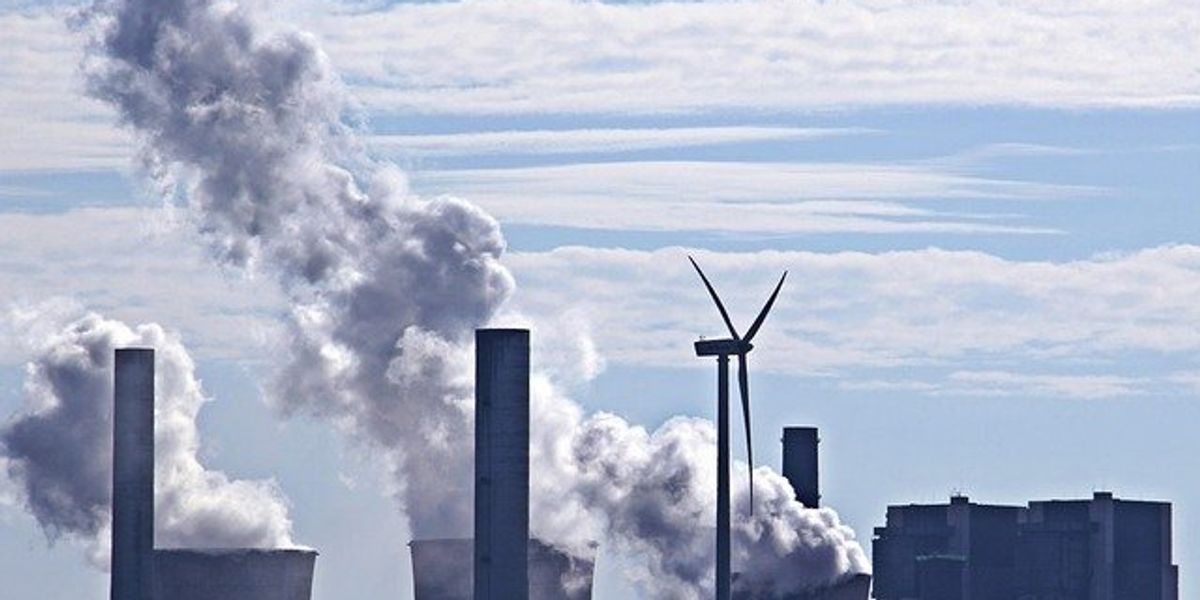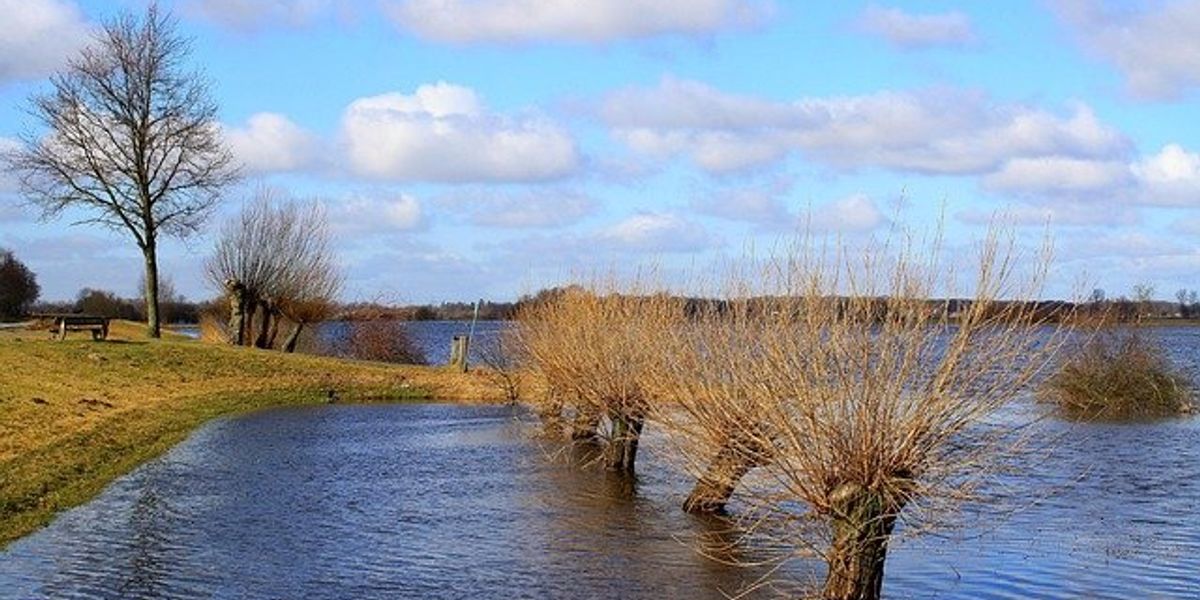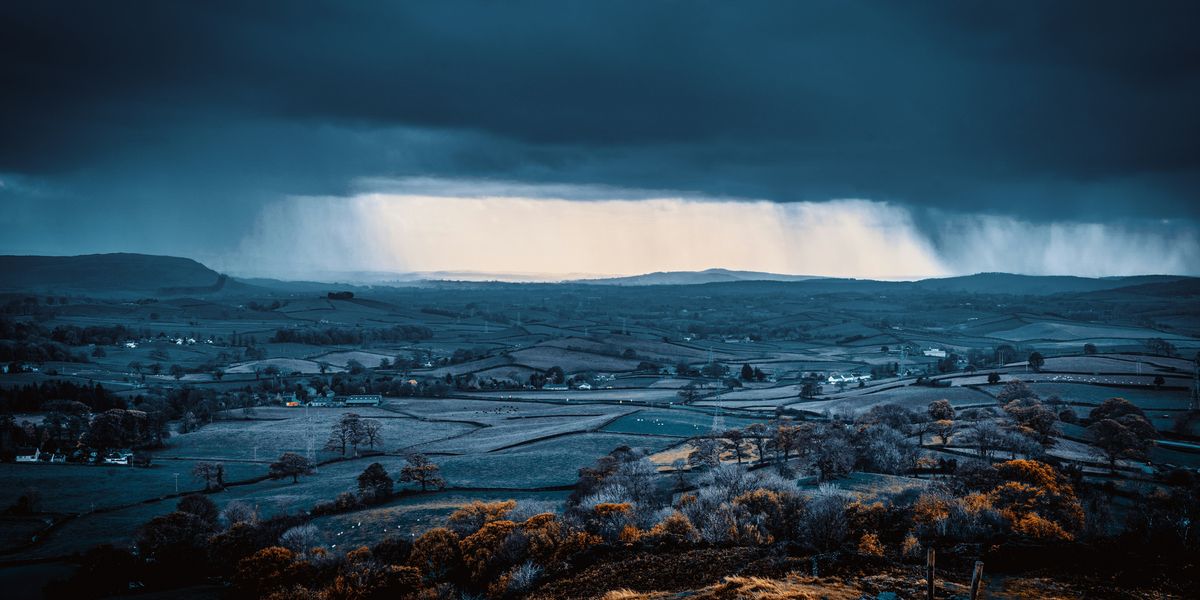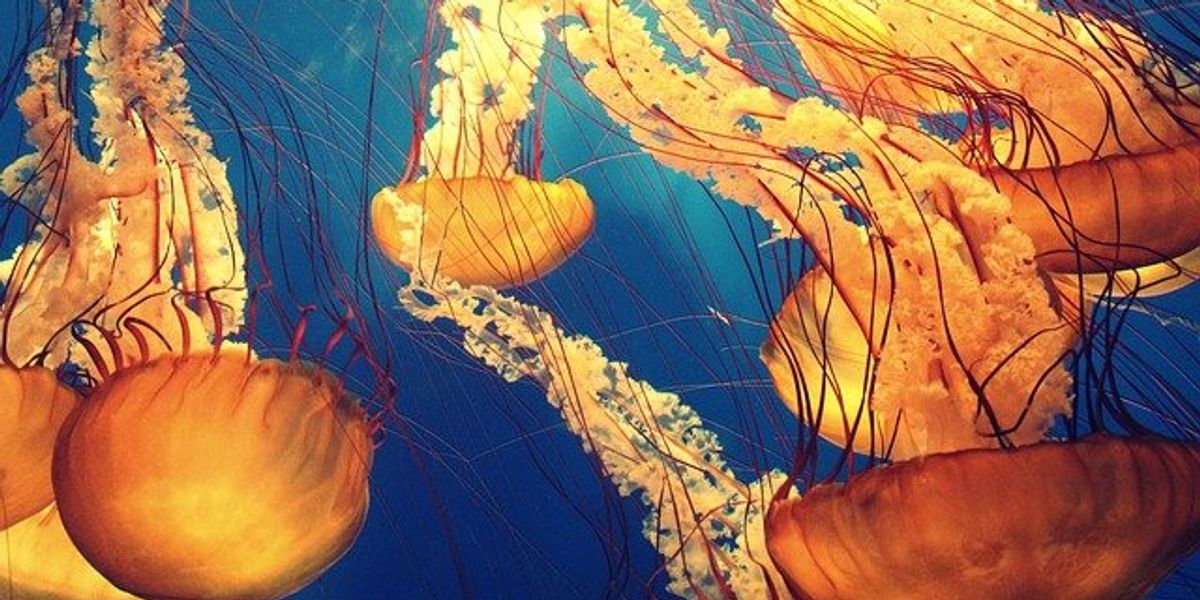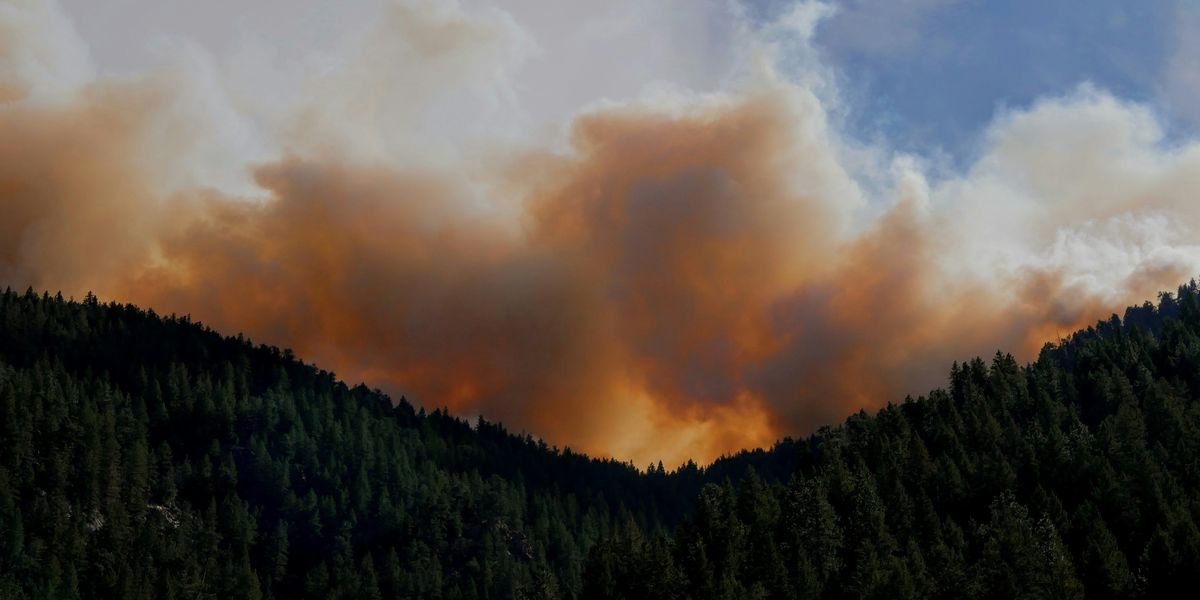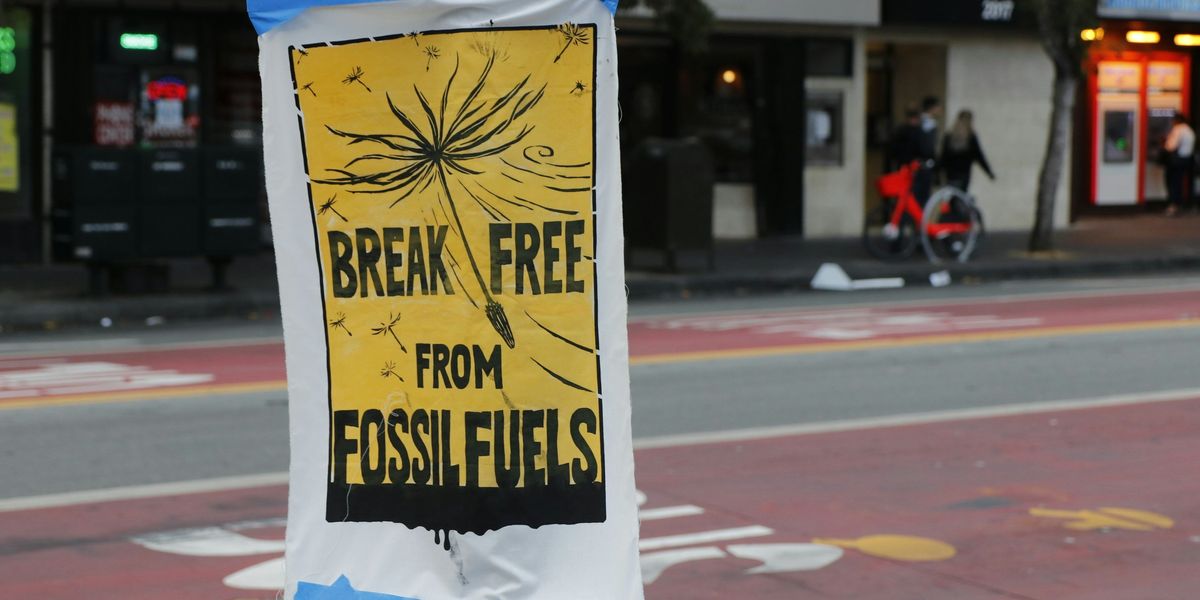tribal sovereignty
LISTEN: What would a just energy transition look like for US tribes?
Two senior fellows discuss the intersection of tribal sovereignty and energy justice.
LaFrance is a member of the Apsáalooke (Crow Nation) and a Ph.D. candidate in the department of environmental science at the University of Arizona. Patterson is a Diné (Navajo) Ph.D. student in environmental health sciences at Columbia University’s Mailman School of Public Health.
The Agents of Change in Environmental Justice podcast is a biweekly podcast featuring the stories and big ideas from past and present fellows, as well as others in the field. You can see all of the past episodes here.
Listen below to their discussion, and subscribe to the podcast at iTunes or Spotify.
Transcript
Brian Bienkowski
Hello and welcome back to the Agents of Change in Environmental Justice podcast, a partnership between Environmental Health News and Columbia University's Mailman School of Public Health. I'm Brian Bienkowski, senior editor at Environmental Health News and the editor of Agents of Change. I hope everyone is ready for the holiday season and you have some time off over the next couple of weeks to relax and recharge. But today we have another fun fellows-driven podcast. Senior fellows JoRee La France and Kevin Patterson discuss what a just energy transition would look like in tribal communities. La France from the Crow Nation and Patterson from the Navajo Nation talk about energy production and use in their own communities and the challenges and opportunities to make it more sustainable. Enjoy.
JoRee LaFrance
I come from the Apsáalooke nation in southeastern Montana. I'm currently a doctorate student in the Department of Environmental Sciences at the University of Arizona studying soil and water science, specifically, my doctorate research is looking at surface water quality and watershed management in the Little Bighorn River, which is a river that I've grown up along my entire life. It's located on my reservation. And I feel very fortunate to be able to do work on a river that my people have always relied on. And that will be a river and a resource for our future generations. And I'm so happy to be here today with my fellow co host, my fellow Agents of Change in Environmental Justice cohort member and also my fellow Dartmouth alum. We're happy to be here to be speaking a little bit about energy transitions in Native nations
Kevin Patterson
My name is Kevin, thank you so much for you know, thank you to the AOC team for allowing us to have this conversation today about Native nations and energy justice. JoRee and I met really, you know, what is it now? like 10 years ago, I think or almost
JoRee LaFrance
I'd be like, six? Yeah, I would call it.
Kevin Patterson
And I think it's so incredible to be sharing this space with you by just, you know, all of your passions and commitments with your work, and what we do in our respective communities when we and studying water that really, I think brings us to this current conversation. And so, I mean, we've had many countless conversations about Native nations in the US. But one of which we want to highlight today is one that's been motivated by the 2019 purchase of the Spring Creek Mine, which is on the traditional homelands of the Apsáalooke nation by the Navajo Transitional energy company, which is owned by my tribe, the Navajo Nation. So because of this unique connection between both of us, as respective tribal citizens of these nations, again, I'm Diné and JoRee is Apsáalooke. So we really hope to provide some personal narrative to this connection, but really speaking to larger themes about what tribal sovereignty means. Sometimes it's much simpler to begin this type of conversation with something very simple. Like to really understand myself as this second citizen came when I was in high school, we had to take Navajo government courses as a requirement of being students, Navajo students within my school district. And you know, I've heard all these things up to this point before about like, Yes, I'm Navajo and I think I only ever really understood that in a cultural sense, you know? Like, I knew I had this you know, ID and this certificate of Indian blood that was like telling me that I was Navajo but I didn't really understand myself beyond a cultural sense until with you know, stepping into this course and really seeing like, oh, wow, this is like a whole, you know, people get like tribal IDs, you know, and I hadn't even known that existed until then. So I don't know if that's a similar experience. You have JoRee there? Oh,
JoRee LaFrance
yeah, it is. I have a tribal ID and I didn't really understand what a tribal ID was either until I got older, but I knew it was there. Yeah, and I had to have one.
Kevin Patterson
And I think in our time and undergrad was, you know, really, I think when I really started understanding the nuances into everything that was Indian country today, I think that even was the name of a course taught by Professor Bruce duto by that is to say that, yes, we are in some sense and a technical sense that we are like dual citizens, between our own tribal nations, and then also the US government. And so that type of sense of by that that allowance through the federal government is a privilege that is only afforded to tribes that are federally recognized tribes, and then to some state recognized tribes. Today, there are 574 federally-recognized tribes, there are 63-state recognized tribes in 11 states. And then there are six tribes currently in the petition process for federal recognition. So federal recognition itself is such a huge boost to any tribe that is not currently federally federally-recognized, because they actually get services and kind of benefits these benefits. Yeah, from the Bureau of Indian Affairs, in at a greater sense, the federal government with that, and I, as I just like a very simplified way of seeing that, that my sense of self and you know, who I thought of myself as this, you know, this dual citizen I have myself as a Navajo Citizen, I'm a US citizen. I go go on from that. And like, you know, it really does. I think and maybe you agree here JoRee. impacts the way I see my own work, but I see the the way, or even what is we're even allowed to imagine, like it sort of is it and I said this earlier, it is this allowance by the federal government, for us to even have an imagination about what we want to see ourselves because it affords us tribal sovereignty. So that really brings us to like, a fundamental question and a truth about who we are as tribal nations today, you know, are we looking to keep doing the same thing doing like what we were essentially modeled and programmed to be in I mean, that by how my tribe, and maybe this is the same for you, too, with your nation, JoRee. But our Navajo Nation Council was founded, we have like three branches of government, we have a president, vice president. And we have in a similar sense, like a house of like, our tribal council is like, combined of like, the House of Representatives and Senators. And we have a judicial branch. So it's in our constitution too, is so it's modeled by the US and mirrored in the same way. And so we are in in some ways, like these little mini US, you know, nations. So put it so, it's, um, a fundamental question of, you know, are we continuing to be what the US is, like, are we look, is the goal for us to be you know, what this is? or can we reimagine what this looks like, and reimagine more specifically in the focus of this podcast into what our stake is within the energy sector, and what that means?
JoRee LaFrance
The way... everything you just mentioned reminds me of a quote, reminds me of a quote said by the most awesome Dallas girl to also watch Reservation Dogs on Hulu, Dallas go to this on there. And I had an opportunity to be a part of a workshop with him. And one of the quotes that he said to me that stuck has stuck with me to this day is he said, "we can't be afraid to manage a future in which we exist." And I think that really speaks to the conversation that we want to have today. And so shifting into reimagining what our futures look like in terms of tribal sovereignty, energy sovereignty, this conversation is just to give a little bit of perspective into the reality that we face as individual tribal members of our communities, but also trying to get people to think about and challenge what sovereignty looks like for us as tribal nations. So
Kevin Patterson
Individuals' concerns about, you know, the contamination, from the pollution that's emitted from, you know, a coal-fired power plant can be a health impact concern of a community and maybe even have their local jurisdiction. But, you know, if it's something that is promoting the either, I want to say like, quote, unquote, here the "economic prosperity," of just maybe the area, but of the tribe in general, then
JoRee LaFrance
Oh, yeah,
Kevin Patterson
I think they're kind of different voices not always in unison about something. Do you have a similar experience there?
JoRee LaFrance
100% 100%. There's definitely different views of coal development within our county, you have those who are employee tribal members of this coal mine. But also the history of this mine, the mine was the first coal shipment that was sent to a generating station happened in 1974. And you have this generation of Apsáalooke people who are very proud of this coal mine, in terms of providing, you know, like you mentioned, economic prosperity for us. It provided a sense of security at the time for us in not only for individual families for those who relied as on the coal mine for their employment, to provide for their families. But it also provided a sense of security for us as an economic resource to function as a government. But then you have those who were totally opposed to the mine, who did not want to get into this extractive industry in any way. We also had impacts to our cultural importance sites – there was actually a buffalo kill site, and that was destroyed, based on you know, the poor decisions of people who were in office at the time, who decided to expand this coal mine and completely destroyed this buffalo kill site. We had tribal members who were going head-to-head on these issues. So yeah, it's the same here we have different, you know, interests in the mind, not only from the tribal aspect, and families and you know, our districts – we similar to you in chapters, we have districts, we function on a three branch system the same way that the federal government does, we have legislatures from each of our six districts who we vote in to represent us, and then you have stakeholders like the county, Bitcoin County, and then you have the state of Montana, who each of these different stakeholders, they obtain royalties from this coal mine. And at the time, when these negotiations were made, it was us it was absolve the gap people who got the short end of the stick. And you know that that coal mine is still being run today. And a lot of our tribal members, my fam, my own family members rely on this coal mine for much of their economic resource and to live, you know, to just survive, to live in this society that we live in today. So it's it's definitely a complicated topic to talk about. But I think it's really important that we think about the impacts that these industries have in our communities and how we ended up being involved in these industries, but also this just transition and thinking about the future of coal and then re imagining our history or sorry, reimagining our future, learning from that history, learning how to make better, more informed decisions, learning why our tribal leaders at that time made the decisions that they made. So when we move forward as leaders of today, as citizens of our tribal communities of today as, you know, really taking hold on the responsibility of having a role in your community and knowing that your role has a stake in the future of your community, and reimagining what that looks like for sovereignty, what our sovereignty looks like in the future, is something that we need to be thinking about as a nation, something we need to be thinking about on the ground level, in terms of individual sovereignty, community sovereignty, tribal sovereignty, and how we can strengthen our tribal sovereignty to work toward a future that we imagine a future that we believe we deserve, because we do deserve this. But we've been handed cards, you know, throughout history that has held us back from this, but also limitations and restrictions, that prevents us from making decisions that we want to make. So it's, I think the conversation we're having today is really just trying to touch on the, the experiences we face as people from these communities, but also as scholars, as researchers who want better for our communities, who know we deserve a better future, and are working, actively working towards that future.
Kevin Patterson
Moving the conversation now to more of this idea around what a just transition looks like for our communities. We recognize that... what you were saying the impacts of you know, the fossil fuel industry so far, are not just limited to, you know, the what we know of what gets emitted into the air, soil and water, but also the network that it creates in the area, the people that are not just not just even within an economic sense, but even health sense, like a lot of families that rely on the health insurance through that, through care providers that also are funded through those industries as well. By like, you know, in an area that is pretty remote, there are going to be needed setups of, you know, healthcare providers of even other services, such as water. So when you remove that, it doesn't really remove that whole network in that area, especially one that's been operating, like, for instance, on the Navajo Nation, the NGS, which has been there since 1969. Or at least that's when the lease was signed. So it is quite it's quite a rooted system, that now when we move into a conversation about just transition, and like, what that looks like for tribes, it at least from our understanding, and like from you know, those of those that we know that work within this much more intimately and have, in some ways better expertise, but also – JoRee, you are the expert here, so if you want to talk about your recent experience, if you wanted to talk about that – where there is a after the uprooting of these networks, these systems that have been so in many ways beneficial to the community, in terms of just the health systems that have been established, all of this. And I don't even say that as like any credit to like those energy companies as well. Because when you think about it, is it an investment in the land? Or is it an investment in the community that is in that area? Like, if there if that's been uprooted out, then I feel in my understanding that there was no investment in that community. And I feel like that that is a pretty popular narrative that a lot of these industries Well, you know, kind of proclaim and like advertise out, but really, we see that you know, when they're gone, everything that they provide also leaves with them. So it's like, okay, well, now we're back to sort of, in some sense square one about, you know, a community that has been reliant on this. How can we fill that? And I think that obviously comes in these ebbs and flows, where there's this investment into something like Spring Creek Mine, where it's trying to fill in these gaps quickly, to kind of get a better like to get its footing again, so that it's like a tribal nation is able then to have a more clear conversation about renewable energy, because now it's in a position where it's not drowning. Like, it's above water, it can, like now engage with this. But I think often times, especially with more, you know, smaller tribes, I would say, like resource-deprived tribes are in a state of this kind of drowning phase where they can even have this conversation about just transition.
JoRee LaFrance
Tribal communities in a lot of ways, especially on tribal lands, there's a lot of restrictions and limitations that really hold us back in a lot of ways. And I say that, because when you think about just transition for a tribal community, and you think about a just transitions for, let's say, hard in Montana, which is a border town on my reservation, they have a solar, the solar field, right outside of town, and for them to get that solar field was a much easier process for them than for us to build a solar field, we have so many barriers, so many different levels of things that we have to work through. So it's really important to think about, you know, some of the restrictions and limitations, the system set in place for us to not be able to reach or be able to invest in some of the efforts that we would we would like to, especially when it comes to just transition. And you mentioned earlier that I... So I recently attended the Irving Institute for Energy and Society New Energy Summit at Dartmouth College, which was held in July 2023, just last week for us. And it was I'm not in energy at all. But I've just inherently fell into the energy sector, given the environmental work that I do. I study surface water quality in the Little Bighorn River, which is a river on my reservation. But I'm also a part of the Apsáalooke Energy Justice Project, which is a group of eight young Apsáalooke leaders who are doing our own individual work, you know, contributing to giving back to our community in any way. You know, we have people who are in construction, people who are journalists, myself, who is in environmental science, and those who are in civic engagement. So they brought us together to really learn about the history of coal, Apsáalooke coal, learn about the negotiations, learn about why we made these decisions. I mentioned this earlier before, that it's important to know the this history so we can make better informed decisions. So now we're at this point of executing an oral history project to learn from those individuals who made those decisions. I want to know why they made these decisions, what motivated them, what what was their reasoning, and how what are their thoughts now? you know, we're thinking about a just transition. Why didn't we invest in renewable energy? We have the Yellowtail dam, which is on my reservation, we have the US versus Montana court case, which was very integral in not only our water rights, but also in jurisdiction regulations. And there's so much history that happened. I was born in 1995. Yet these cases that were made in the 60s impact my every single, like every single day of my life. And so it's important to know this history and the Apsáalooke Energy Justice Project is really helping us find out that history become more knowledgeable and interact with that that intergenerational conversation so we can pass that knowledge down. So we can make decisions moving forward with more knowledge and more understanding of the grid, of renewable energy, of clean technology. Even a new word I learned at the Energy Summit was energy literacy, I would have never thought of that energy education going into our schools and teaching about clean energy. And I think, what really important in all of this that I really found out, and I tend to separate myself or silo myself based on disciplines, energy really impacts all of us. Electricity, we use electricity for every single thing. And you go on to reservations, not all of our homes have electricity. And yet, you know, for my community, specifically, we have the Yellowtail dam, it's one of the four main peak generating stations of electricity in the entire United States. No one from my community receives electricity from this dam, from the Yellowtail dam. And that's really heartbreaking. But it also speaks to some of that history and those decisions that were made.
Kevin Patterson
I didn't mean to cut you out there. But I've just been about to say that it's so it's so important to have what your collective organization is doing. Because the conversation itself of just transition. We know has not It's not been had, you know, between our family members, between, you know, the tribal citizens. I feel that it for the most part, a lot of our tribal citizens and our nation, respective nations, don't know like what is happening at the broader scale, just transition. But even at that, like what the tribe is doing, like the Navajo generating stations closure was pretty abrupt. Like I think a lot of the community members were just taken aback and shocked by just the immediate closure of NGS. I can't speak on like, what the consultation was to the tribal, tribal government was with the local community and chapter houses. But if that was not had, then I think it is an important point thing to note there about how, again, these three levels of Interplay where the tribe is operating as this nation to nation, of course, but its people are not always kept within decisions made at that higher level. So what you're saying there is incredibly important, for sure, definitely. And it's, I think, another thing that you touched on about, or I think that it's such a large concern about any energy that's produced on tribal lands, that it goes back into the communities where that energy has been, you know, extracted from, you know, developed and sent off like, NGS, I think was powering, like Arizona, Nevada, California. And so, it's, it's so important, you know, when we see like, are we even in the investment in the energy sector? Is it like an investment into powering at large scale communities that aren't our own? And that's why it's like this transition to renewable energy is almost like, not so much as a priority. Because if we were, I mean, I wonder if like, we could power our own communities, just our communities with renewable energy. And like, you know, it's sort of like a question of, again, back to the same thing. What are we able to reimagine through tribal sovereignty when it comes to what our position is within the energy sector?
JoRee LaFrance
yeah, no, I agree. I think that's a very important thing to bring up is the Navajo Generating Station providing power for multiple states in the Western region. And for us, our coal was sent to the Midwest, it was providing coal for Xcel Energy Western Fields Association, Rocky Mountain Power, all of these coal company or sorry, electric electricity companies that don't provide electricity for my community at all. And I think that's where I really have conflict with is, we have a coal mine, we're extracting coal, this coal is being sent elsewhere, to power plants generating electricity for other communities. Yellowtail dam, same exact thing. And you have tribal members who have to pay to external sources to get electricity, you have homes that don't have electricity, don't have running water. So here we are feeling the impacts, the economic impacts, the cultural impacts, the environmental impacts of this industry. And we're not receiving the electrical benefits from that. It's such a interesting place to be.
Kevin Patterson
Right? Yeah. And I don't mean for any of our listeners here today to to think that we are holding all the answers or saying everything that needs to be said right now, as two water scientists here. Or at least people who study water, that something as precious as that that's used in such large quantities for all these industries, has been, I think, really still at the core of what concerns us and what our research is. Well, I think we both don't get into the whole, you know, this is what it says in law, or like, this is the history, like, you know, historically placing all these different treaties, and then how this plays out, I think, our lived reality, and, you know, studying water in our communities is that the water in its current state, is by result of these, you know, human-centered activities of mining, that have really impacted the quality of our water and the quality of our environment over time, like, no question, like the levels of heavy metals and other inorganics has really brought into question like all that we see now, when it comes to just transition and this pressure for that. But also, as indigenous scientists, and all of this. We do hold as we've been saying throughout this episode, that there is still hesitation. And there's still nuance to consider when it comes to seeing that while yes, all of this has has happened, we're seeing this contamination. It is also in the same step that we have to consider the impact on people's livelihood, that in the same way that you know, all this has been happening the same way that their lives have been so interconnected with these industries over time and the networks that have been established, that I think are really unseen, in some ways until its absence is really seen.
JoRee LaFrance
I think that's a very important point to really elaborate on is the reimagining what our future looks like and believing in that future and having a nation mentality. And I speak to this in terms of talking to my fellow tribal people, those who are a part of a nation who has sovereignty, who practices sovereignty, that we need to have a nation mentality, we need to think on this level. And I think the whole conversation we have today is so multi-layered, especially in respects to sovereignty, individual sovereignty, family, sovereignty, community, tribal, state, county, federal– is so multilayered. But when you really think about the impacts of coal or energy development in any way, whether it's renewable or fossil fuel, you have to think about the impacts of those who are on the ground. I think as academics, we're both academics here, who are in the Ivory Tower, doing the work doing our scholarship that we always remember not to remove ourselves from, from those who are impacted on the ground. And I feel like both of our research were very community-based that all we think about are those who are on the ground their everyday lives. But I hope that if there's one thing that people will take away from this conversation is not to forget about those who are experiencing these impacts every single day. But they are at the the hands of people who are decision makers, especially when it comes to energy transition. And I just hope that people don't forget about those who experience the ground impacts, who are on the frontlines, who are at who are in these homes who are adjacent to these plants, who are relying on these coal plants as their main economic resource. I'm not trying to look down upon this or look down upon these families who, who are, who are employed at these places, I completely understand I'm a part of a tribe who's invested in this, and I have family members who are invested in this, who live paycheck to paycheck. And that's just the realities, and I just hope, I just hope people don't forget about us and the complexities and the intricacies that we have to go through
Kevin Patterson
you know, as tribal citizens have the autonomy to make these decisions and input in and be informed, that then steers the direction of the greater, you know, government itself of our tribal nations, towards what we are, you know, I, whatever the, that decision leads to, I think that's a perfect like, if anything, if there if nothing of any other resolution doesn't cover a solution comes out of this conversation, it's just in that the information needed for community members is so dire right now. And that what what's happening at these higher levels within our tribes often goes unchecked, or is often at times in contention with local communities, local constituencies, have those conversations happening. So that is all to say that the work being done within local organizing is in some regard, one first step into this much larger chain change and reimagination that can occur, higher levels within tribal government, and then eventually, you know, leading into being a lead voice within government to government relations.
JoRee LaFrance
Exactly. I 100% agree with that. And I think our individual research is at a community level, it's at an individual level, we our research is really looking at how it impacts our tribal members, our community members, and energy justice, energy transition, the energy conversation is no different. And including individuals who are impacted every single day by the decisions that are made at higher levels in, you know, like the stakeholder hierarchy, if you will, or even just, you know, at different agencies, that it's those on the ground, it's our community members who are feeling the impacts. And when we think about coal development, or energy, justice, or anything related to the environment in any way, it's our community members, tribal community members who are impacted the most, and we can't forget about them in this conversation. We can't forget about us, our family members, we have both have family members who are impacted every single day by these things. And my biggest thing is, we are doing the work, we're doing our best to the capacity and the ability that we have. So we are out here doing the work. I don't want to make it seem like we're not doing the work because we are and there are systematic barriers and limitation set in place. But we're still here.
Brian Bienkowski
that's all for this week, folks, if you enjoyed this podcast and visit agentsofchangeinej.org And while you're there, click the donate button to support us. You can also find Agents of Change on Twitter and Instagram and please follow us on Spotify or iTunes where you can listen to this and all past episodes.
Report details how Biden can protect 30 percent of U.S. lands and waters by 2030 without Congress
The report focused on eight actions that the administration could take to conserve public and private lands while combating climate change, respecting tribal sovereignty, and expanding access to nature for underserved communities.
How a Tacoma gas facility started a fight over climate change, sovereignty and human rights
Line 5's impact on climate change being reviewed as part of tunnel decision
New rule requires consultation with Virginia tribes about development
Gov. Northam signed an executive order that requires state agencies to consult with Virginia tribes before making decisions that affect them, and create a tribal ombudsman responsible for keeping a list of the projects tribes would deny if given the authority.












